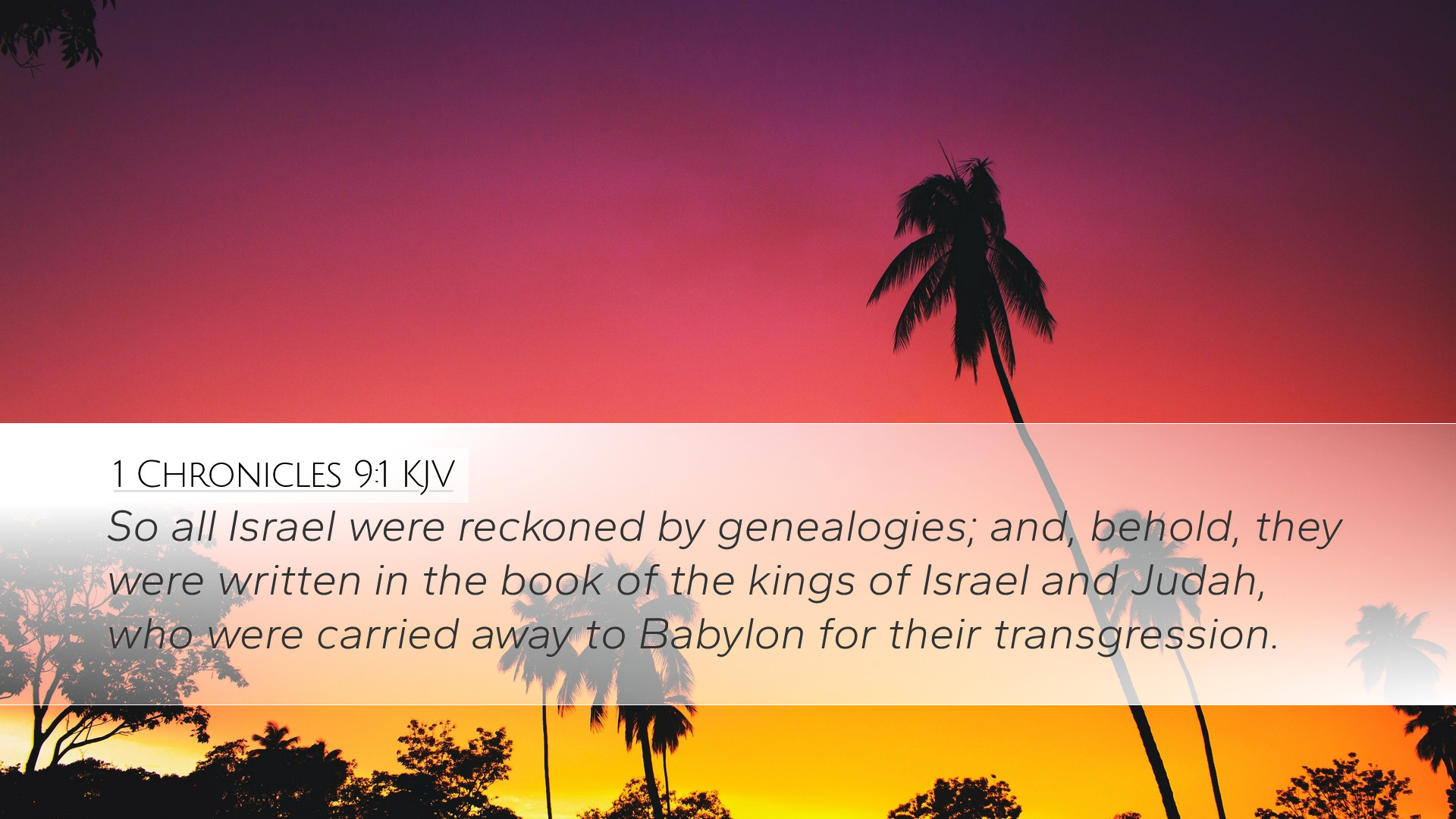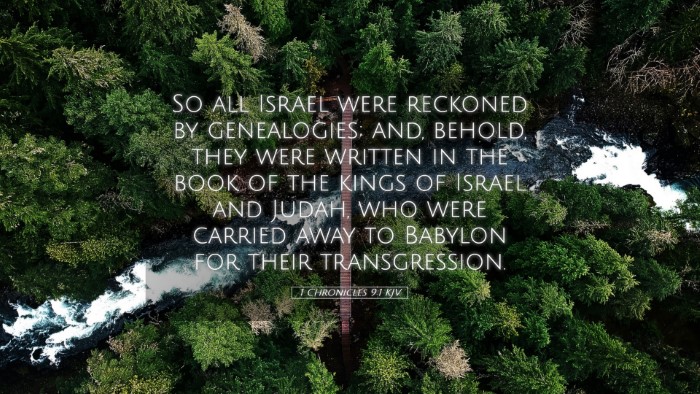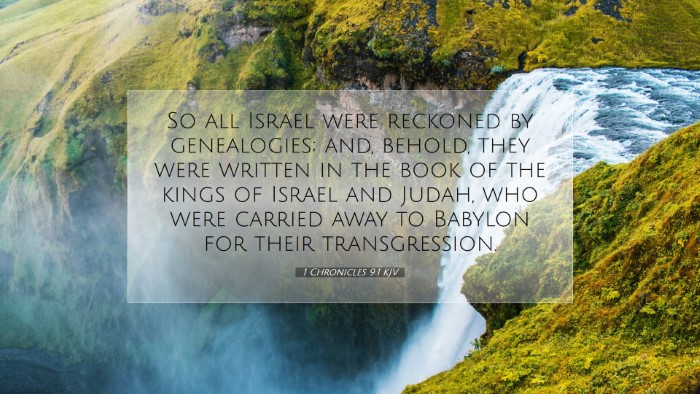Commentary on 1 Chronicles 9:1
Text of the Verse: "So all Israel were reckoned by genealogies; and, behold, they are written in the book of the kings of Israel. And Judah was carried away to Babylon for their transgression."
Introduction
This verse serves as a significant pivot in the historical narrative of the Chronicles. It introduces a genealogical account that not only emphasizes the heritage of Israel but also touches upon the consequences of sin and the nature of divine judgment.
Historical Context
The verse is set in the post-exilic period, when the people of Israel were re-establishing their identity after returning from Babylonian captivity. The genealogies are not merely lists but serve a theological purpose, providing a reminder of God's faithfulness amidst Israel's failures.
Commentary Insights
Matthew Henry's Perspective
Henry emphasizes the importance of genealogies as records of God's covenant faithfulness. He notes that the Israelites were "reckoned by genealogies," which signifies their identities and roles within God's plan. It illustrates how God has preserved a remnant of His people despite their transgressions.
Albert Barnes' Analysis
Barnes draws attention to the specific mention of Judah being led away to Babylon "for their transgression." He highlights that this is a reminder of the consequences of sin and acts as a sobering reflection on the nature of divine justice. Furthermore, Barnes elucidates that genealogies serve as an assurance of God's promise and continuity of the descendants of Abraham.
Adam Clarke's Observations
Clarke provides an in-depth examination of the genealogical record, interpreting it as a reflection of both national pride and accountability. He signifies that being "written in the book of the kings of Israel" suggests an enduring legacy that links the past to the present and future. Clarke also notes that genealogy was a necessary aspect of re-establishing tribal identities upon their return from exile.
Theological Implications
Genealogy as Divine Providence: The detailed genealogical records demonstrate that God is actively involved in the course of human history. Israel's history is inextricably linked to God's overarching plan for redemption, reminding believers that God's providence remains firm regardless of human failure.
Consequences of Sin: The mention of Judah's captivity serves as a stark reminder of the consequences of disobedience to God. The exile was a direct result of Israel's actions, promoting the idea that sin can lead to judgment, yet it is through such judgment that God also provides the opportunity for repentance and restoration.
Identity and Community: The genealogical records foster a sense of identity among the people of Israel. This is critical for understanding their place in God's plan. Recognizing one's heritage allows individuals to appreciate their role in the larger narrative of salvation history.
Practical Applications
- Understanding Identity: For pastors and theologians, reflected identities in Christ are essential. Just as the Israelites found identity in their genealogy, believers today find their identity in being part of the body of Christ.
- Emphasizing Accountability: This verse speaks to the necessity of accountability within the Christian community. Sin leads to separation from God's favor, and churches must strive to maintain integrity and moral conduct.
- Encouragement Through Legacy: Students of theology can glean from the well-documented heritage of Israel to encourage faithfulness in today's believers. The genealogical affirmations remind believers that they are part of an ongoing story written by God.
Conclusion
1 Chronicles 9:1 encapsulates rich insights into God's faithfulness, the consequences of sin, and the importance of heritage. The commentary from historical theologians reveals a layered understanding of Scripture that challenges and encourages contemporary readers to appreciate their own spiritual lineage. As believers reflect on this verse, they can find guidance in their journeys of faith, recognizing that despite human frailty, God remains sovereign and purposeful in His dealings with humanity.


